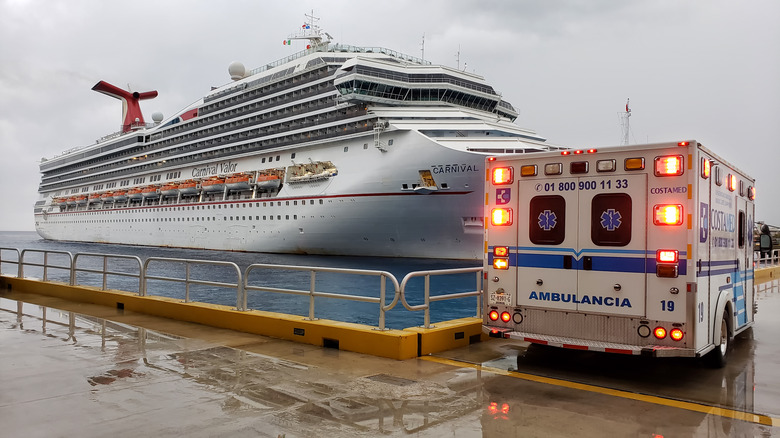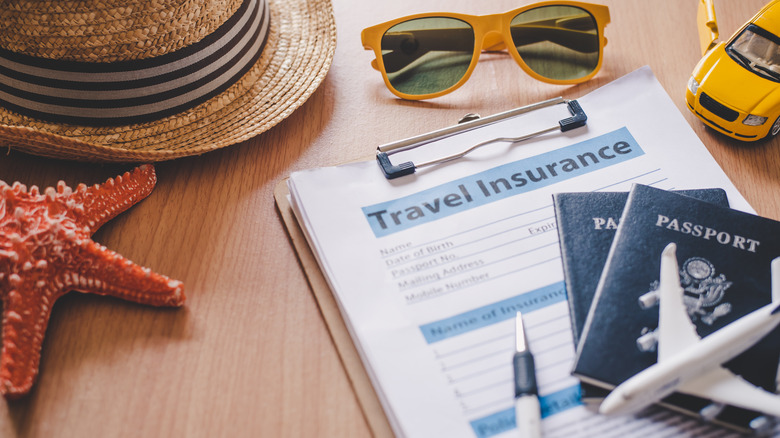The Unnerving Reason To Always Read The Fine Print Of Your Travel Insurance, Especially On A Cruise
Fans of cruise ship travel love the convenience of traveling by sea. Visiting multiple destinations in an all-inclusive floating hotel is the perfect getaway for a certain kind of adventurer. The culture of cruising is so established that, for newbie cruisers, it may seem that there is an unspoken rulebook for cruising. And one thing a first-timer should definitely discuss before boarding is insurance. Especially when traveling outside the country, travel insurance can cover unforeseen medical emergencies in addition to lost luggage, cancellations, and travel disruptions.
Cruise companies frequently offer travel insurance as part of a package deal, which can be advantageous, but it's important to read the fine print of these deals. Pam and David Thomas, a couple living in the Houston area, thought they were seasoned cruisers and confidently signed up for travel insurance through Royal Caribbean. However, when David had to be evacuated due to COVID-19 in the middle of their cruise, Pam was handed an initial bill for $8,500.
"Our insurance had to pay first before our travel insurance would pay," she told KHOU-11. "If you do read all the small print, it does say they coordinate benefits." In total, Pam says she had to pay $21,000 out of pocket before eventually being reimbursed. It's an expensive lesson to learn: "Coordination of benefits" is a common term in the fine print when dealing with multiple insurance policies. If you don't know when and how your medical and travel insurance work together, you may find yourself footing the bill first, then getting paid back much later.
Understanding primary and secondary insurance
When an individual is covered by more than one insurance provider (as is often the case on cruises), the insurance companies need to coordinate to determine who pays first and how much each company should pay out. The primary policy is usually the one that pays first. This is often the main medical insurance that people use in their everyday lives. Secondary travel insurance is what's often sold by cruise lines. This activates only after the primary insurer has paid out.
Check the fine print to see which policy is primary and which is secondary. A good thing to do is imagine an emergency scenario and research how much you might have to pay up front, before your primary, then secondary, insurance covers you. Especially on cruises, medical evacuations can cost anywhere between $15,000 and $200,000. It's important to know that you might be expected to pay that up front.
Tips from expert cruisers: In the event of an emergency, contact your insurance company early. The faster your insurer can open a claim, the faster it can work with you to cover the bills. In some cases, an insurer may be able to get you medical care within their network — even when overseas — allowing them to cover costs immediately. Also, make sure to keep all medical records and save detailed documentation. You'll need them to file the claim. Just because you have medical and travel insurance doesn't mean you are covered for everything. You might be surprised at what's not covered in your travel policy.

